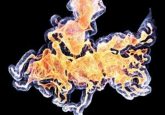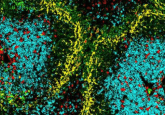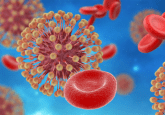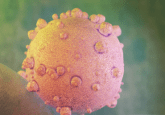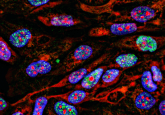AACR22: A COVID-19 vaccine for people with B-cell deficiency
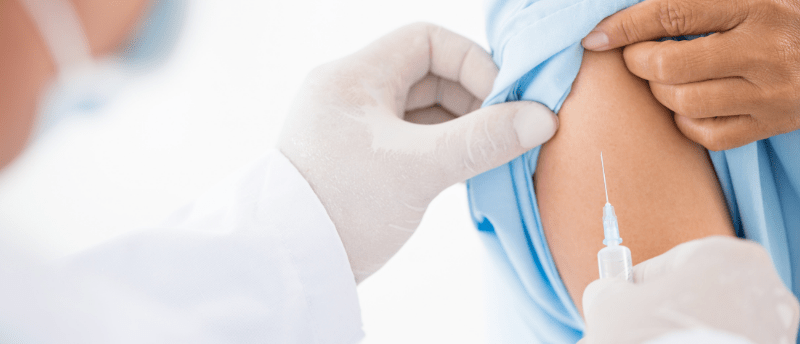
Refer a colleague
Those with B-cell deficiencies are still vulnerable following current COVID-19 vaccinations; however, researchers have created a new vaccine that targets T-cell response and works on immunocompromised people.
While the COVID-19 vaccine drive and mRNA vaccines have allowed life to return to normal for many, one group of people – those with compromised immune systems – have remained vulnerable and isolated. Researchers from the University Hospital Tübingen (Germany) have been working on a solution for people with humoral immunity deficiencies by targeting T cells and cell-mediated immunity.
As senior author, Juliane Walz, explained, “many cancer patients do not mount sufficient humoral immune responses after vaccination with available SARS-CoV-2 vaccines”, leaving those with cancers such as leukemia or lymphoma also at high risk of severe COVID-19. Many cancer treatment options, including some chemotherapies and immunotherapies, destroy B cells, and patients become immunocompromised. As current vaccines rely on B cells and an antibody-mediated response, patients with reduced humoral immune response are less likely to develop immunity when they receive these vaccines. The team has been searching for a vaccine option that allows immunocompromised patients to build up an immune response to COVID-19.
In the human immune system, there are two lines of defense: the first is an antibody-mediated response or humoral response, which current vaccines target; and the second is the cell-mediated response or innate immune system, where T cells control the immune reaction. When patients are immunocompromised, their B cells are affected, but their T cells and innate immune reaction remain intact. The team decided to work on a vaccine that targeted T cells. Claudia Tandler – who presented the study at the AACR Annual Meeting 2022 (8–13 April; New Orleans, LA, USA) – explained this decision was backed up by “previous evidence [that] has shown T cells can combat COVID-19 even in the absence of neutralizing antibodies”.
 How does the immune system self-regulate
How does the immune system self-regulate
Researchers identify a key molecule controlling two wages of Regulatory T cells, which work to mediate killer T cells and protect healthy tissue surrounding infections.
The team has created a vaccine, called the CoVac-1, using a careful selection of six SARS-CoV-2 antigens. These antigens are taken from specific parts of the whole COVID-19 virus rather than just the spike protein like the current mRNA vaccines. These carefully selected antigens are then directly injected intramuscularly via a peptide vaccine. “CoVac-1-induced T-cell immunity is far more intense and broader, as it is directed to different viral components than mRNA-based or adenoviral vector-based vaccines that are limited to the spike protein and are thus prone to loss of activity due to viral mutations,” said Tandler.
So far, the vaccine has performed well in a Phase I clinical trial where safety and efficacy were tested in healthy patients. It then went on to perform well in a Phase I/II trial where 14 immunocompromised patients, including 12 with leukemia or lymphoma, were given a single dose of CoVac-1 and monitored for safety and immunogenicity. After 14 days, T-cell immunity was observed in 71% of patients and this increased to 93% after 28 days. While the vaccine performed well, the study trial had a small sample size and lacked racial and ethnic diversity. The next steps include a Phase III trial with a larger, more diverse cohort to further prove the efficacy of the new vaccine.
We won’t be able to turn the page on the pandemic until everyone can live with COVID-19 in the community without fear. These results provide a hope for those with compromised immune systems, meaning we may be one step closer to life after the pandemic.
Please enter your username and password below, if you are not yet a member of BioTechniques remember you can register for free.
